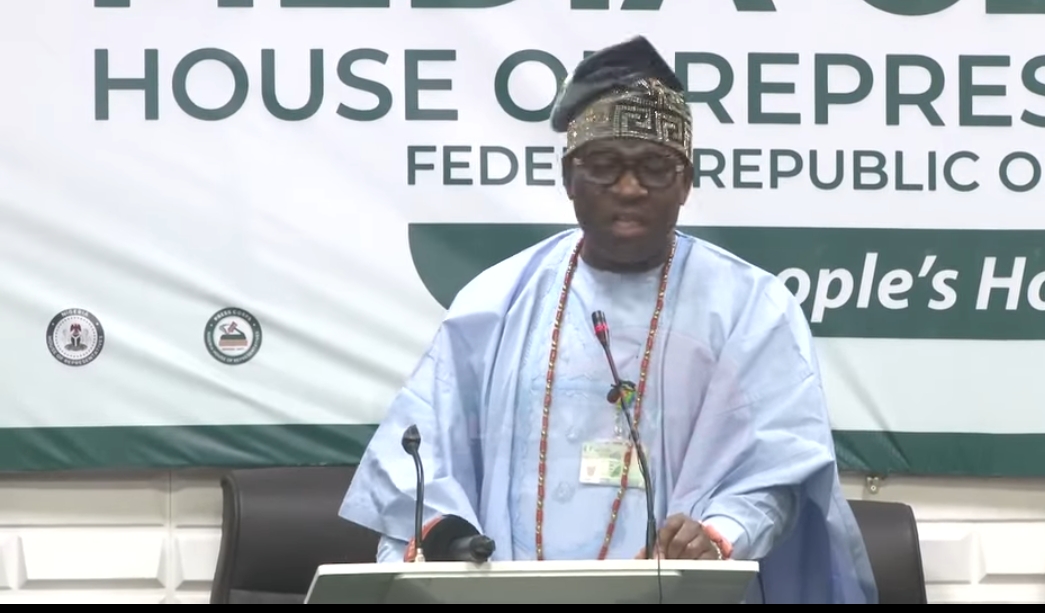
When is the next public holiday?

IN my column on April 11, 2024, titled, “Nigeria, a country in love with public holidays,” I lamented that “the idea of unending public holidays is not only absurd but also sickening” in reaction to the Federal Government’s ‘magnanimity’ in awarding Nigerians an extra day for the Eid-el-Fitr celebrations in early April.
As it is always the tradition, the Minister of Interior, Olubunmi Tunji-Ojo, had on Sunday, April 7, declared Tuesday, April 9, and Wednesday, April 10, public holidays for Eid. But that was before the House of Saud weighed in on the issue of moon sighting, announcing on Monday, April 8, that the crescent of Shawwal had not been spotted, meaning that the fasting would continue on Tuesday and the Eid celebration, the first of two canonical festivals of Islam, will take place on Wednesday, April 10.
Shortly after, the Sultan of Sokoto, Alhaji Sa’ad Abubakar, who is the President General of the Nigeria Supreme Council for Islamic Affairs, NSCIA, threw his ecclesiastical weight behind the Wednesday date announced by the Kingdom of Saudi Arabia, claiming that the report of the National Moon Sighting Committees across the country confirmed the non-sighting of the new moon.
Then, on Tuesday, April 9, as Nigerians were already marking the first of the two-day public holidays already declared, the Federal Government approved Thursday, April 11, as an additional public holiday.
Nigerians, mostly public servants, who would rather idle away at home than go to work were beside themselves with joy despite the dire consequences of incessant public holidays on productivity.
The extension, I stated in that article, raised two issues: “Why didn’t the Federal Government wait for the moon to be sighted before declaring Tuesday and Wednesday public holidays? And having already made the declaration, why was an additional public holiday necessary when Wednesday, the real Sallah day, is one of the two days already declared?”
A week before the Eid celebrations, the entire country was on holidays for two days – Friday, March 29 and Monday, April 1 – in celebration of Easter, also called Pascha or Resurrection Sunday, the Christian festival and cultural holiday commemorating the resurrection of Jesus Christ from the dead.
I was unequivocal in my conclusion on the deleterious effect of these unbridled holidays on the country’s economy. Truth be told, no country desirous of productivity can afford to deliberately put her people out of work in the name of religious ceremonies as Nigeria does. These incessant work-free days are ill-advised. The wasted man-hours are unquantifiable and the economy is worse for it.
The saddest dimension to the malaise is the fact that whenever these holidays fall on weekends, the next working days are quickly grabbed and declared work-free days.
I also stated in that article that I was not hopeful the government will summon the political will to do the needful.
And the reason for my pessimism is simple. A government that will remove fuel subsidy and hike electricity tariff but surreptitiously pays N90 billion to subsidise hajj operations for self-serving political gains can never summon the will to do the needful.
That was two months ago. Since then, we have had more public holidays, both statutory and forced: Wednesday, May 1, 2024 – Workers Day; Wednesday, June 12 – Democracy Day. In-between, organised labour shut down the country for two days to protest government’s ambivalence on minimum wage and hike in electricity tariff. In South-East, the Indigenous People of Biafra, IPOB, ordered beleaguered citizens to sit at home for three days starting from May 30, in remembrance of Biafran fallen heroes.
Then, throw into the mix the fact that the same IPOB has in the last three years declared every Monday a work-free day in the region, then the absurdity of the problem stares you in the face.
As I write, although the two-day public holidays officially declared by the Federal Government to mark this year’s Eid-el-Kabir officially ended on Tuesday, in some Northern states, the entire week may well be work-free because in most Muslim-dominated states, Fridays have equally been appropriated as part of the weekend. Where it is not expressly so, workers at best work half-day, leaving for home after the Jumu’ah Prayer (Friday prayer).
This tradition has been made worse by the supremacy battle of the two dominant religions – Christianity and Islam – none of which is indigenous. In fact, while their adherents are here stridently pushing that every of the 365 days be declared public holidays, the nations where these religions originated – Arabian Peninsula and Israel – each year earn billions of dollars from people all over the world, including Nigerians, embarking on religious tourism.
LE MONDE diplomatique, a French journal, in its August 2020 article titled, “Saudi Arabia’s holy business,” stated that pilgrimage to Mecca comes second only to hydrocarbons as the country’s main source of income, earning “an average of $10-15bn a year from the hajj and another $4-5bn from the eight million visitors making the umra, a non-obligatory pilgrimage to Mecca that can be performed at any time except during the hajj period, with numbers peaking during Ramadan.”
The report, according to the Mecca Chamber of Commerce and Industry, said 25-30 per cent of private sector revenue in the holy cities comes from the two pilgrimages.
“In 2018 Saudi Arabia estimated the two pilgrimages would bring in $150bn over the next five years, and the kingdom wants more. The Vision 2030 plan for economic diversification drawn up under the aegis of Crown Prince Muhammad bin Salman predicts that by 2030 some 30 million people will be making the umra annually. It describes religious tourism as a ‘sustainable option’ for the country at a time when it seems to have lost its unique ability to exert a stabilising influence on the price of crude,” the magazine further stated.
Of course, a substantial part of this humongous revenue comes from Nigeria, including the N90 billion the Tinubu-administration paid this year to subsidise the hajj.
What is worse, when these ceremonies fall on weekends, the nearest weekday is quickly appropriated as a public holiday. Since it has become a convention that a minimum of two days must be used in celebration, if the ceremonies fall on a Saturday and Sunday, then Monday and Tuesday are sacrificed on the country’s hedonistic altar.
This is ridiculous, particularly against the backdrop that on public holidays, major economic activities are automatically shut down – all financial institutions, schools, and government offices go on break.
Is it any surprise then that according to data from the World Bank, the growth rate of labour productivity (GDP-to-labour force ratio) which ranged from -3.13 per cent to 3.93 per cent between 1991 and 2001, hit 10.55 per cent in 2002, has persistently declined since then, reaching negative values from 2013?
According to the labour productivity statistics of the International Labour Organisation and the Global Competitiveness Index 4.0 2019 Rankings, Nigeria stands at 134th and 116th globally, respectively, signalling significant challenges in productivity.
How can a country performing so poorly in the productivity matrix afford so many public holidays?
Truth is, when it comes to no-work days, Nigeria only competes with such countries as Myanmar, Nepal, Sri Lanka, Bangladesh and Cambodia. That is not a good company to keep for a country with over 63 per cent of its population multi-dimensionally poor and 41 per cent unemployed.
In the developed climes of Europe and North America, no one can afford such luxury. For instance, in the United Kingdom, there are eight bank holidays (public holidays) a year in England and Wales – New Year Day, Good Friday, Easter Sunday, May Day, late May Bank Holiday, Summer Bank Holiday, Christmas Day and Boxing Day; nine in Scotland and ten in Northern Ireland. The United States recognises 12 federal holidays and in Canada, there are 10 paid general holidays every year.
So, when is the next public holiday in Nigeria?
Who knows?
It may even be next week, if the emperors who misrule us and their religious collaborators so decide, even as serious nations ramp up production in anticipation of increased product demand from those of us who continue to “lay up for ourselves treasures in heaven, where neither moth nor rust destroys and where thieves do not break in and steal.” A shame!














Post Comment